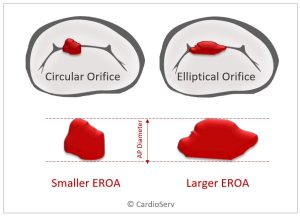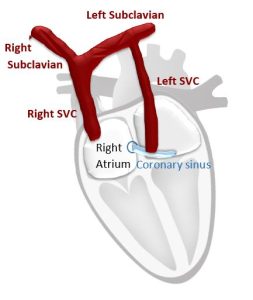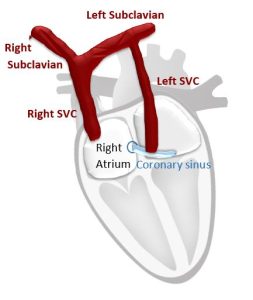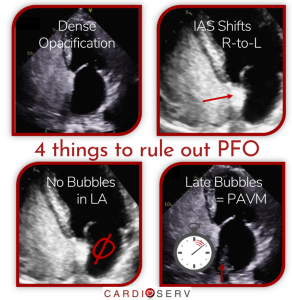Now that we have covered all the methods for evaluating mitral regurgitation (MR), let’s put it to use! The ASE released an algorithm as a guide to help determine the severity of chronic MR, using both qualitative, semi-quantitative & quantitative measures.
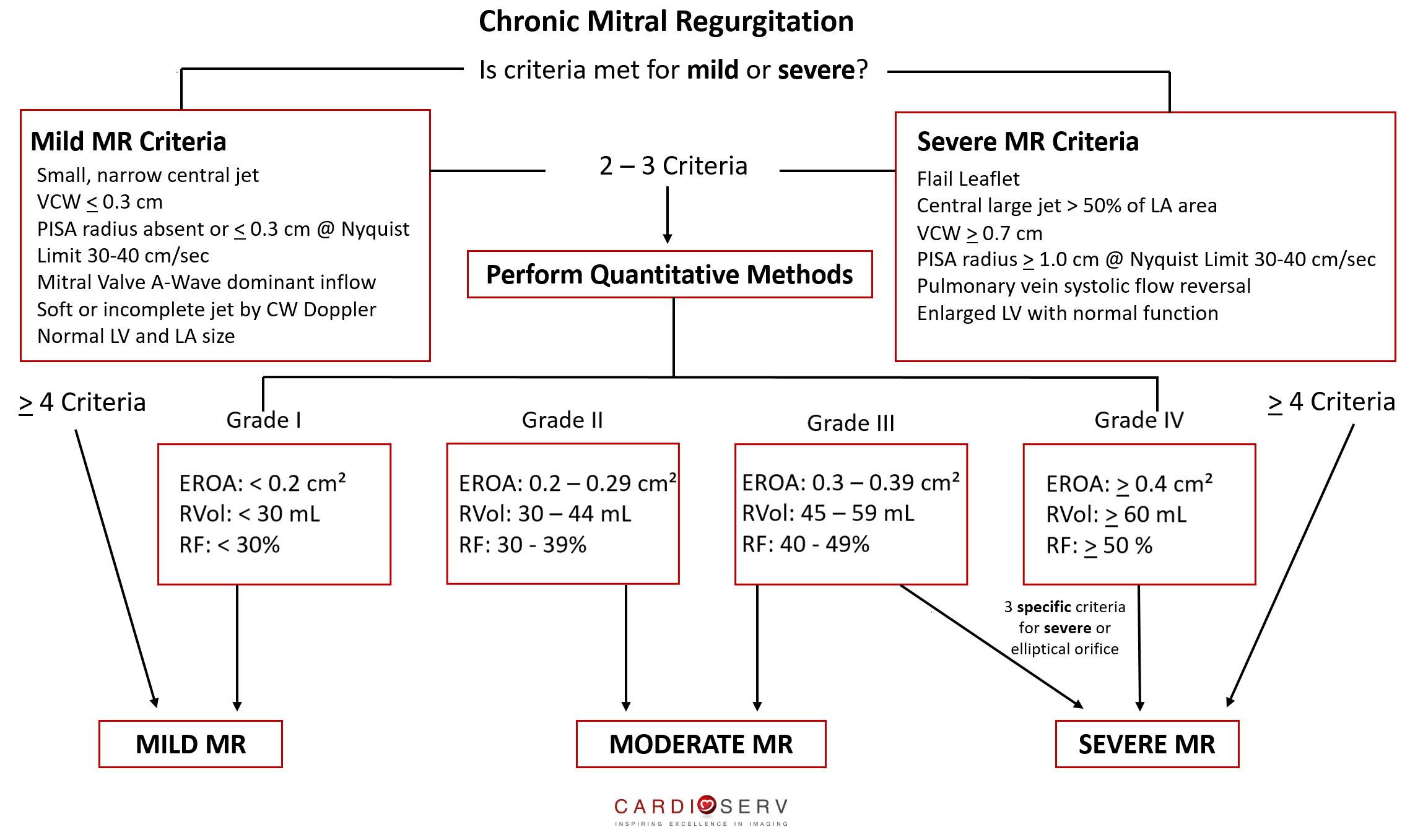
We understand how crazy this algorithm looks, so we are going to break it down to better understand!
QUALITATIVE & SEMI-QUANTITATIVE MEASURES:
We can use these qualitative & semi-quantitative measures to help us determine a baseline assessment for the severity of MR.

The algorithm allows us to easily rule out mild or severe by meeting 4 or more (> 4) of these criteria:

If we can prove > 4 of these criteria, we can confirm if the regurgitation is mild or severe:

If we are only able to meet 2 or 3 of these criteria or values fall in the ‘intermediate’ range, then we need to perform quantitative methods to further determine severity:

QUANTITATIVE MEASURES:
The quantitative methods provide us with the following values:
- Effective Regurgitant Orifice Area (EROA)
- Regurgitant Volume (RVol)
- Regurgitant Fraction (RF)
The algorithm divides the values into 4 grades to help us determine mild, moderate or severe MR.

Let’s break this down these 4 different grades:
WHAT DOES THIS MEAN?!

ITEMS TO NOTE:
- Algorithm is used for chronic mitral regurgitation
- Values for EROA are based upon a holosystolic MR jet
- Patients with low-flow conditions: regurgitant volume (RVol) for chronic MR may be lower
CONCLUSIONS:
We encourage our readers to utilize this algorithm when determining the severity of chronic mitral regurgitation! If you missed our blog series, covering the qualitative, semi-quantitative and quantitative methods, you can check them out here! Keep an eye out for next week, as we present a case study!

Andrea Fields MHA, RDCS
Stay Connected: LinkedIn, Facebook, Twitter, Instagram
References:
Zoghbi, W. A., MD, FASE, & Adams, D., RCS, RDCS, FASE. (2017). Recommendations for Noninvasive Evaluation of Native Valvular Regurgitation. JASE, 30, 4th ser., 1-69. Retrieved June 12, 2017.





